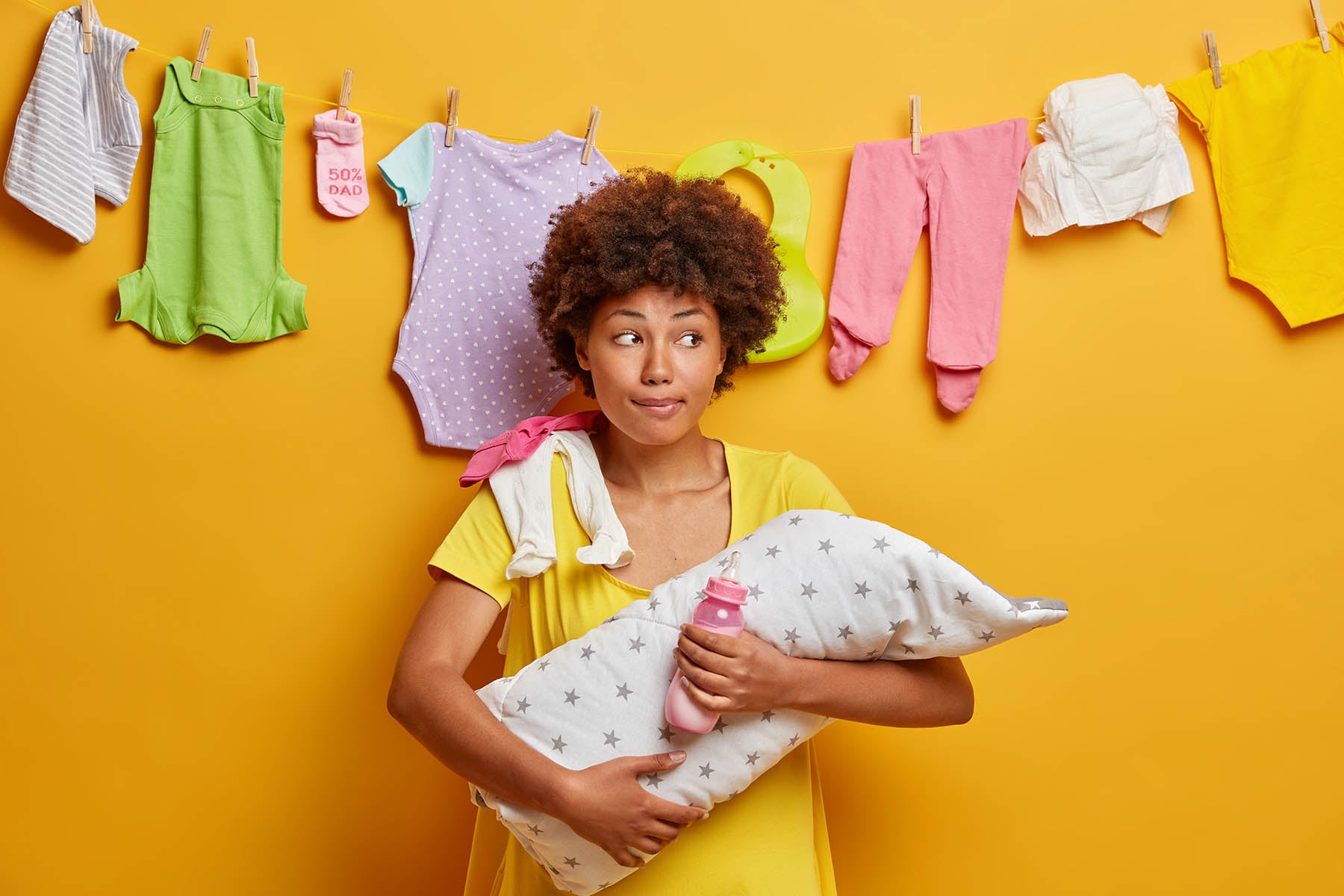

· By Joey Santos-Jones
6 Unexpected Things That Happen to Your Body After Giving Birth
For the last nine months, you have witnessed your body grow and change. Oh, pregnancy! How great it was. Now that your baby is here, your body will still undergo surprising adjustments to get back to your new normal. Don’t worry–your body is surprisingly resilient.
While most things will return to normal, some things will be different. Not different in a bad way, but different in a great way. What should you expect in your postpartum journey?
1. Your breasts will continue growing.
Did your ta-tas grow, or is it just you? Surprise! Your breasts will continue to grow after delivery.
The baby is here, and so is the colostrum. Colostrum is the first milk your body produces during pregnancy. It’s super nutrient-dense and high in antibodies for your newborn. Beyond just that, your breasts after pregnancy are still growing. You should expect continued full feeling in your breasts as milk production continues to grow. You will feel relieved through frequent breastfeeding.
Need a break from pumping? You can apply heat to give yourself some relief if your breasts feel overfull and uncomfortable. Hot baths and showers are also a great way to reduce your discomfort.
Read More: Six Common Breastfeeding Worries for New Moms
2. Your uterus Is going to contract after delivery.
When you enter labor, your uterus will be 15 times heavier than before pregnancy. Once you deliver your baby, your uterus will contract to get back to pre-pregnancy size. This process of your uterus contracting to return to its normal size is called involution. Involution happens when the uterus becomes inactive (after childbirth).
You may feel painful cramps during this period. Remember, your uterus spent the last nine months growing to nearly 25 times its original size. While your uterus will shrink after pregnancy, it won’t be as small as previously.
Breastfeeding your newborn can help quicken the process of your uterus contracting. Through nipple stimulation, a hormone named oxytocin will be released into your bloodstream. Oxytocin soothes muscles and helps your uterus get close to its original size.
3. You will have post-delivery bleeding in your first week.
Whether or not you have a vaginal birth or a C-section (Cesarean birth), your body will bleed heavily for about a week following birth. This is your body’s way of shedding the lining of the uterus and any excess blood that your body does not need anymore.
You may start to experience bleeding within one day of giving birth. It basically will feel like a heavy period for a week.
Expect to see bright red for the first couple of days. After that, the color will subside to a rusty brown and become less heavy.
Only use sanitary pads, no tampons (ouch!) as they could cause further damage as you are healing.
If you experience heavy bleeding within the first 23 hours – you may be experiencing a postpartum hemorrhage. Postpartum Hemorrhages are rare but serious conditions. If you’re experiencing any heavy bleeding post delivery – call your doctor ASAP.
4. Your pelvic floor may need some attention
Get ready for some urine leakage. Sigh. This is normal for every mother, given that pregnancy and labor demand a lot on your pelvic area. To help decrease swelling on your pelvic floor, try these tips:
- Use ice packs on your perineum (the skin between your vagina and anus) to reduce swelling.
- Keep your hips elevated by placing a pillow under them.
- Do very gentle pelvic floor contractions. Exhale gently, draw in your lower abdomen muscles, and squeeze in the muscles around the urethra like you are trying to stop the gas. Hold this for one to two seconds, then let everything go.
- You should feel your pelvic muscles drop and relax when you let everything go.
5. Your hair is going to fall out (sort of).
That lush head of hair you accumulated during pregnancy is going to be a thing of the past. Don’t worry! The hair you see in the drain or your brush is a little shedding. Hormones do strange things. While you were pregnant, your hair stayed in its growth phase. You essentially were accumulating a bunch of extra hair. After birth, your hair returns to its normal hair cycle, and with that – that excess hair will shed.
Read More: Sudden Postpartum Hair Loss: What Causes it?
There’s nothing to be concerned about, and your hair is safe.
6. Your Vagina is Going to Hurt
Nobody said pregnancy was for the weak! If you had a vaginal birth, you can anticipate swelling and bruising for a few days after delivery. Again, a human being somehow got through there.
Lying down rather than sitting will also help with the inflammation, and lying on your side rather than your back can also help ease the pressure. If you still have your body pillow, it’ll make the experience a bit more comfortable. Do the best you can with what your body allows.
Keep your butt off hard surfaces, and try to find comfortable cushioned seating areas.
Inflammation and some swelling are going to be present for a few weeks after delivery. Your vagina stretched to make room for the baby to come out. While amazing how your body adjusts to give life, it also needs time to get back to normal.
You just helped bring life into the world. Be gentle on yourself, mama. It took time to bring your child into the world, and it will take time to recover. You are capable of a robust and smooth recovery.
Shop the Article:
We recommend our Postpartum Hairloss Gummies and Postpartum Sitz Bath for your postpartum journey. For DHA support, consider our DHA or Total Postnatal + DHA.




































